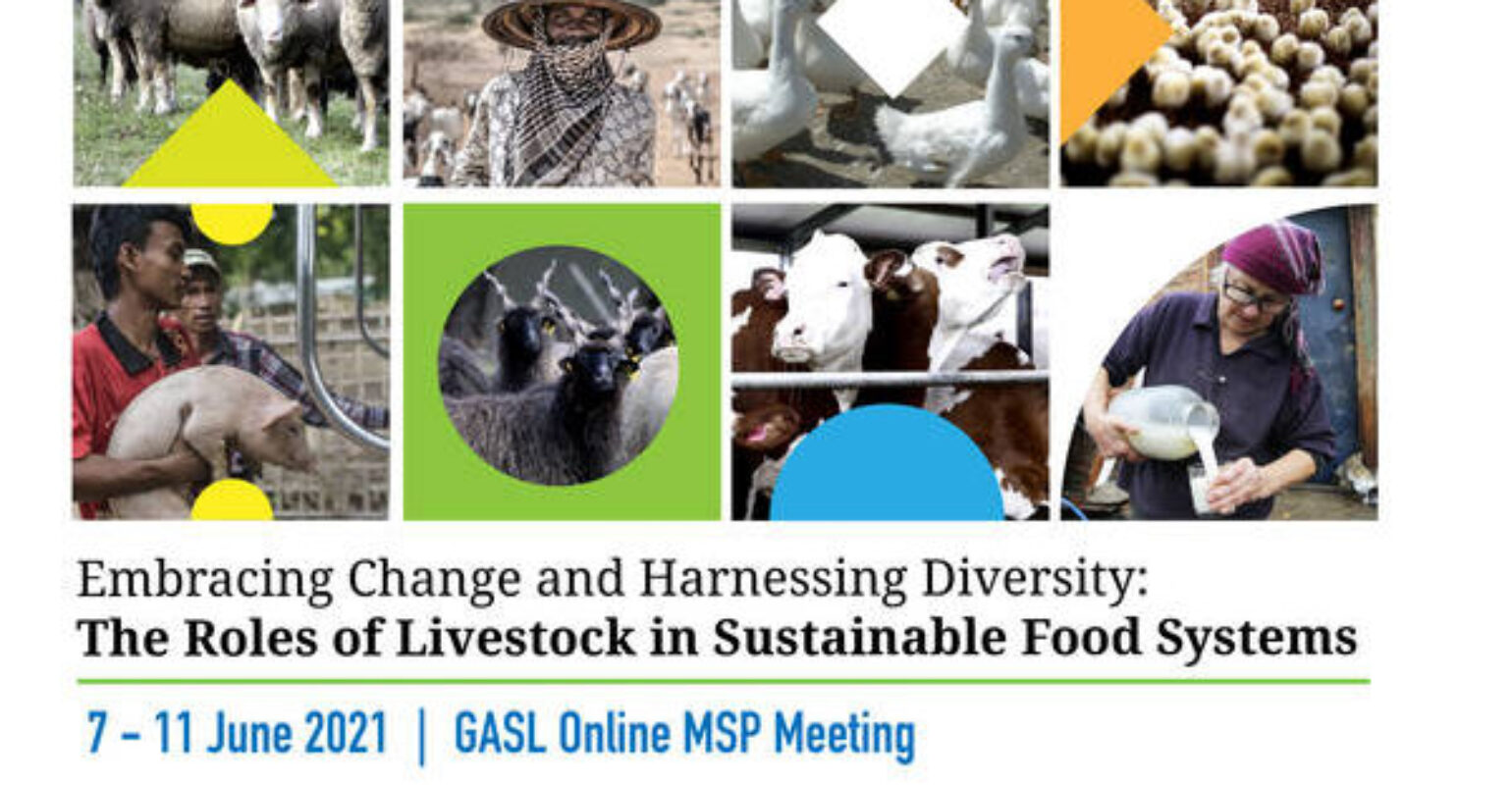IFIF Executive Director Alexandra de Athayde joined an expert panel on ‘Embracing collaboration and synergies to foster livestock sector change’ during the 11th Multi-Stakeholder Partnership (MSP) Meeting of the Global Agenda for Sustainable Livestock (GASL) on ‘Embracing Change and Harnessing Diversity: The Roles of Livestock in Sustainable Food Systems’.
Ms. de Athayde highlighted that collaboration among the GASL, COAG Sub-Committee on Livestock (SCL), and the UN Committee on World Food Security (CFS) will be an opportunity to share knowledge, to work together to help refine science-based policies, and to support each other’s agenda in support of the UN SDGs. In addition, she underlined that Animal Nutrition, through innovation and efficiency, is and has been an essential part of the solution to make the live- stock production chain more sustainable. The role of animal nutrition is to ensure animal resilience and productivity, producing more with less, optimizing environmental resources, applicable to farmers in developed countries, as well for small- holder farmers in developing countries.
IFIF is a founding member of the GASL and the fourth day of the 11th MSP Conference began with a welcome from Alwin Kopse, of the Swiss Federal Office of Agriculture (FOAG), who introduced the panel discussion on food systems transformation. Collaboration and synergies within and outside GASL were the basis for the discussion.
The first speaker was Badi Besbes, of the Food and Agriculture Organization of the United Nations (FAO) and secretary of the new Sub-Committee on Livestock (SCL) of FAO’s Committee on Agriculture (COAG). Besbes said that this new livestock sub-committee provides an important forum for consultation and discussion and advises the COAG on policy and burning livestock issues. The SCL is currently working on a provisional agenda that includes sustainable livestock for food and nutritional security and poverty reduction, animal health, and other matters. Besbes stressed the many ways that GASL and SCL could collaborate in future, including by GASL members contributing or providing feedback to SCL’s agenda, providing information and documenting GASL’s work, and advancing some technical livestock topics.
The second presentation, given by Ambassador Thanawat Tiensin, chair of the Committee on World Food Security (CFS), stressed the need for collaboration and synergies to bring about better health and life through livestock. He cited livestock’s key role in providing essential proteins and in improving livelihoods for the world’s rural populations and smallholders. He acknowledged livestock’s negative s well as positive impacts on the environment and global health.Tiensin pointed out that transformation will be essential for the livestock sector. He said the CFS is calling for diversified and integrated food production systems and that GASL will play an important role in generating discussions and promoting CFS activities and policy solutions.
These presentations were followed by a panel discussion that featured the two presenters Nitya Ghotge, Veterinarian and Co-founding Director of the Indian NGO Anthra, Jimmy Smith, Director General of the International Livestock Research Institute (ILRI), and Alexandra de Athayde, Executive Director of the International Feed Industry Federation (IFIF). The speakers were asked about the various rolls of GASL, SCL, and CFS. The panelists agreed that collaboration will be key to foster changes in the livestock sector and to generate better food systems for everybody. They said that collaboration among GASL, SCL, and CFS will be an opportunity to share knowledge, to work together to help refine science-based policies, and to support each other’s agenda.
You can watch the Panel Discussion here and find our more about the GASL MSP meeting on the GASL website here.

